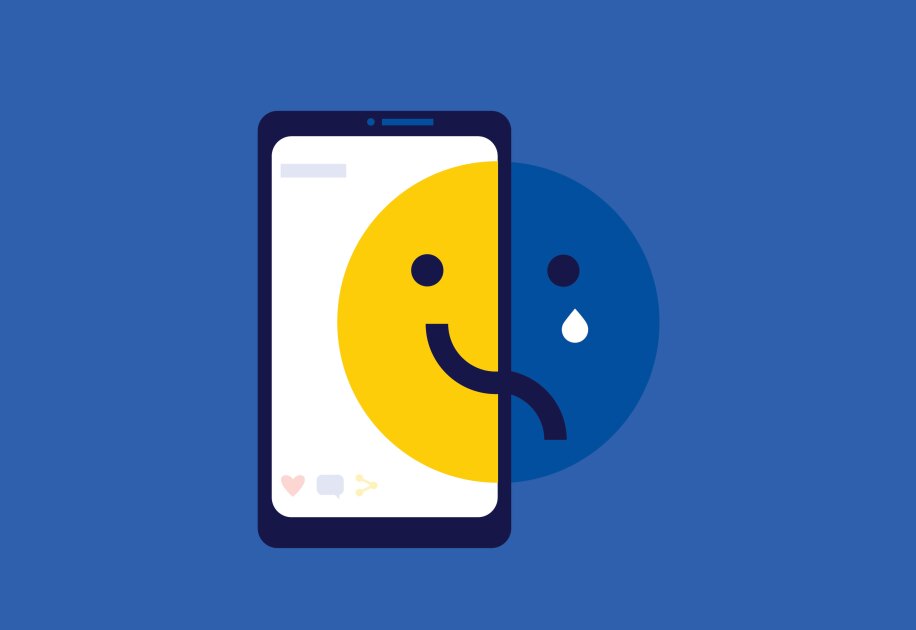[ad_1]
Social media is getting plenty of the blame for the sobering state of youth psychological well being.
And that notion isn’t completely off base. There may be analysis, together with from social media firms, displaying that the platforms can hurt the wellbeing of college age children.
Nevertheless it’s oversimplifying the problem to say that social media is the basis reason behind youth psychological well being issues, say specialists corresponding to Sharon Hoover, a professor of kid and adolescent psychiatry on the College of Maryland Faculty of Drugs. Hoover and others argue that fixating on only one variable, corresponding to social media, as the reason for psychological well being issues is counterproductive.
In reality, educators and college students aren’t even in settlement over what’s hurting their psychological well being. In an October survey by the EdWeek Analysis Heart, academics, principals, and district leaders listed on-line bullying because the primary stressor for his or her college students. However college students listed schoolwork and homework because the more than likely problem to have a destructive impression on their psychological well being.
In a latest dialog with Training Week, Hoover, who can also be a co-director of the Nationwide Heart for Faculty Psychological Well being, defined why adults are inclined to concentrate on social media-related causes of psychological well being issues and what different elements educators ought to be attuned to.
This interview has been edited for size and readability.
Teenagers and educators have totally different opinions on what’s affecting youth psychological well being. What are we lacking within the nationwide dialogue?
It doesn’t imply that one’s proper and one is improper.

Individuals see issues by means of a distinct lens. Some adults is likely to be extra eager to establish one thing that they didn’t expertise as a stressor after they had been rising up. There’s a fast assumption that the rise in psychological well being considerations have to be associated to one thing new to this technology.
I don’t assume it’s utterly unfounded, although. The info does recommend that, sure, there are harms that include publicity to social media, particularly sure varieties of social media like passive utilization the place you’re simply scrolling and taking a look at photographs and type of doing a comparative evaluation of your life to others. Versus what teenagers could also be extra attuned to, which is lively use of social media the place they’re really discovering the advantages, like speaking with others, constructing social networks.
Adults could also be much less attuned to, perhaps extra so even educators, the stressors associated to grades and homework and people educational pressures.
What’s the drawback with overemphasizing one cause for college kids’ psychological well being issues over others?
We find yourself shedding sight of the myriad elements that contribute to youth psychological well being. Then, in consequence, perhaps overinvest in options in a single siloed house that may actually form insurance policies and funding. That’s harmful if we’re specializing in one space, neglecting the others after we know there’s not only one issue that impacts youth psychological well being. In order that’s one massive one.
The opposite piece is that typically after we do that, after we look accountable one factor, social media or homework, we find yourself with all-or-none options that don’t actually acknowledge the complexity of every of those [issues]. So, for social media, there’s hurt brought on by sure varieties of publicity, however there’s additionally advantages.
The pandemic was definitely dangerous to college students’ psychological well being. What else may very well be contributing to declining psychological well being amongst children and teenagers?
So, vitamin and its impression on simply bodily well being, together with hormones. Sleep hygiene we all know is a large predictor of psychological well being and wellbeing, and sleep hygiene is notoriously poor in our adolescents.
Dwelling in poverty, housing insecurity and meals insecurity, that clearly impacts psychological well being. So, if we ignore that and simply say it’s all social media, that’s an issue. Individuals will say, ‘properly, poverty’s at all times been there,’ however we all know that extra younger persons are uncovered to housing and meals insecurity than ever earlier than because the pandemic.
There’s additionally grief and loss. You realize, [at least] 140,000 college students misplaced a guardian or main caregiver throughout COVID. Whenever you’ve misplaced that main determine, you’re going be extra more likely to expertise post-traumatic stress and melancholy and anxiousness.
To not ignore additionally a few of the extra systemic points—what do you need to name it? Political divisiveness or simply the tenor of the nation proper now. Lots of people will say that’s contributing to an general lower in wellbeing among the many common inhabitants. Whenever you’ve bought people who find themselves at odds with one another, it feels prefer it’s much less of a protected local weather for individuals, particularly minoritized people who’re contending with systemic racism. So, numerous elements.
[ad_2]
